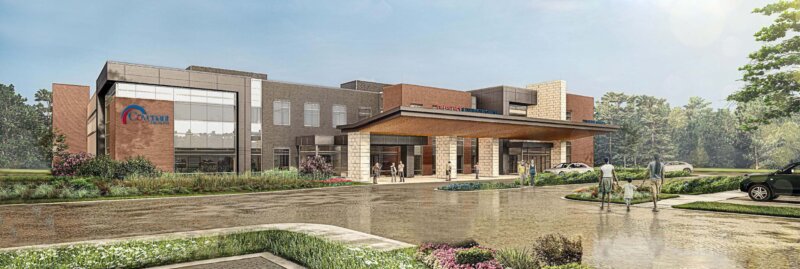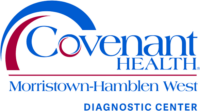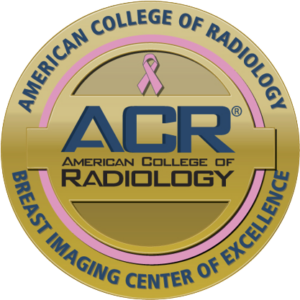Outpatient Imaging Center
Outpatient Imaging Center
Serving the Lakeway Region on June 5, 2023
Serving the Lakeway Region on June 5, 2023
Please join us for an Open House and Community Tours on June 2, 2023
Imaging closer to home
Your Morristown-Hamblen West Diagnostic Center
Imaging closer to home
Your Morristown-Hamblen
West Diagnostic Center
When it comes to your diagnostic health care, you have a choice. Choose Morristown-Hamblen West Diagnostic Center for your imaging care needs!
Morristown-Hamblen offers a comprehensive range of imaging care services and state-of-the-art technology. Our technical staff and board-certified radiologists are devoted to meeting the community’s needs and delivering excellent patient care.
We are proud to be an accredited American College of Radiology (ACR) facility. The ACR gold accreditation seal represents the highest image quality and patient safety level. After a peer-review evaluation by board-certified physicians and medical physicists, it is only awarded to facilities meeting ACR practice guidelines and technical standards.
Address
653 Merchants Greene Blvd, Morristown, TN 37813
Office Phone
423.492.6500
Hours
Mon-Fri 7:30 am – 5 pm
Parking
Free parking is available on-site.
Your Questions Answered
Plan your visit
Morristown-Hamblen West is on the Northeast corner of where Route 66 and US-160 meet. Please see the embedded Google Map above for directions.
Please see our full list of accepted insurance plans here.
- Free-Standing Emergency Room
- Diagnostic Center
- Breast Imaging Center of Excellence
- Hamblen Primary Care
Morristown-Hamblen West is equipped with a free-standing emergency room. This emergency room will serve as a second emergency room of Morristown-Hamblen Healthcare System. However, Morristown-Hamblen West will not have inpatient rooms. Therefore, if admittance to the hospital is needed, the patient will be transferred to Morristown-Hamblen’s Main Hospital at 908 West Fourth North Street or another higher level of care facility.
If you're experiencing a life-threatening emergency, please call 911 immediately.
Imaging no matter what you need
Imaging Care Services Offered
Advanced bone densitometer equipment is available at Morristown-Hamblen to detect subtle bone changes that might indicate osteoporosis’s beginnings. The diagnostic information is faster and more accurate than older procedures.
Computed Axial Tomography is also known as a CT or CAT scan. It is an imaging test that uses x-rays and computerized imagery to make detailed images of the body, including bones, muscles, fat, and organs.
All of Morristown’s CT Technologists are registered with the American Registry of Radiologic Technologists® (ARRT), with an advanced registry in Computed Tomography.
CT services include:
- Routine head, neck, chest, abdomen and pelvis studies
- Orthopedic studies – spines and extremities
- Pediatric studies
- CT Angiography – all arterial studies (circle of Willis, carotid, renal, mesenteric, aorta and run-offs)
- Coronary artery studies
- Biopsies and drainages
Morristown Regional Diagnostic Center provides mammography screenings and breast ultrasounds to detect changes in breast tissue that are difficult to feel by hand. Our mammography unit is digital, using the latest mammogram technology to obtain clearer images for proper diagnosis.
The user-friendly design of the new equipment means greater comfort for women while receiving breast cancer screenings and diagnoses. The new technology cuts scan time in half, allowing patients to be seen more quickly, and it provides enhanced images for the physicians and technologists at Morristown Hamblen Healthcare System.
We also have an extra set of “eyes” on your images with the iCAD review software. This aids the board-certified radiologist by comparing your breast images to thousands of known abnormalities. You can feel confident that your exam is performed with the highest quality and best care.
Fluoroscopy is a technique for obtaining “live” x-ray images of a patient. A dye that shows up on x-rays is injected or swallowed to outline blood vessels or organs as it moves through the body. This process allows the physician to see images inside the body on a TV monitor.
Fluoroscopy is often used to see the digestive tract. It also can help doctors locate a foreign object in the body, set a broken bone or position a catheter or needle for a procedure.
Lung cancer is the leading cause of cancer deaths in both men and women worldwide, and accounts for more U.S. cancer deaths than those from breast cancer, colon cancer, and prostate cancer combined.
Now those at high risk have a new weapon in the fight against lung cancer. It’s called Low Dose CT screening and because of early detection, studies have shown it can lower the risk of death from lung cancer by 20% in people who are at high risk.
LDCT lung screening is one of the easiest screening exams you can have.
- The exam takes less than 10 seconds.
- No medications are given, and no needles are used.
- You can eat before and after the exam.
- You do not even need to get changed as long as the clothing on your chest does not contain metal.
CT Exam Preparation:
- Each patient will need to bring with them a complete written list of medications they are currently taking.
- Arrive 15 minutes prior to your scheduled appointment to register.
- Inform technologist or RN if there is a possibility you are pregnant.
- When the patient arrives to the CT department, they will be asked about their medical history by a nurse or technologist. If lab work is needed, it will be completed prior to the exam
Magnetic resonance imaging (MRI) is a non-invasive procedure that uses powerful magnets and radio waves to create detailed images of the body. MRI is often used to diagnose many types of sports injuries as well as provide clear pictures of the brain, abdomen, cervical, thoracic, and lumbar spines. Unlike conventional Radiography and CT, no radiation is used. Morristown Hamblen Healthcare System as a 1.5T MRI magnet in the hospital with a weight limit of 350 pounds. We offer a 1.5T MRI magnet at Morristown Regional Diagnostic Center with a weight limit of 550 pounds.
All MRI technologists at Morristown-Hamblen Healthcare System are American Registry of Radiologic Technologists® with advanced registry in MRI.
Our MRI services include:
- Neuro – Brain and Spine
- Orthopedics
- Vascular
- Abdomen (liver, spleen, pancreas, kidney)
If you are claustrophobic, please discuss with your physician.
X-rays are a type of radiation called electromagnetic waves. X-ray imaging creates pictures of the inside of your body by emitting individual particles through the body that then get detected.
Radiation protection and minimization of patient exposure is always considered for patient safety.
Nuclear Medicine specialists use radioactive material to access the function of organs or systems within the body. Nuclear Medicine uses small quantities of radioactive materials, called an isotope, targeted to specific organ systems or tissues within the body. These can be introduced into the body in different ways.
Depending on the type of nuclear medicine exam, the radiotracer is either injected into a vein, swallowed or inhaled as a gas. A small amount of radiation is then detected using a nuclear medicine gamma camera. This safe and painless technique often spots abnormalities early in a disease’s progression. It also provides a way to gather the information that otherwise would be unavailable, require surgery or more expensive diagnostic tests.
All Nuclear Medicine technologists at Morristown-Hamblen Healthcare System are registered by the American Registry of Radiologic Technologists® (ARRT) and/or Certified Nuclear Medicine Technologist (CNMT).
Nuclear medicine is used to:
- Analyze kidney function
- Determine the presence or spread of cancer
- Evaluate bones for fractures, infection, arthritis or tumors
- Identify bleeding in the bowel
- Identify gallbladder blockages
- Locate infections
- Measure thyroid for overactive or underactive functioning.
- Provide images of blood flow and heart functioning
- Scan lungs for respiratory and blood-flow problems
Exam preparation:
- Each patient will need to bring with them a complete written list of medications they are currently taking.
- Arrive 15 minutes prior to your scheduled appointment to register.
- Patient will be called the day before appointment. Technologist will inform patient of any preparation needed, estimated exam duration, and will address any questions the patient may have.
- Inform technologist or RN if there is a possibility you are pregnant.
- When the patient arrives to the Nuclear Medicine department, they will be asked about their medical history by a nurse or technologist. If lab work is needed, it will be completed prior to the exam.
Positron Emission Tomography (PET/CT) combines the functional information of a PET scan with the anatomical information of a Computed Tomography (CT) scan. PET scans can detect changes in cellular function, such as; how your cells utilize nutrients like sugar and oxygen. However, CT scans capture cross-sectional images of the body.
Once the PET and CT are combined, the CT provides more anatomical details of the body to see where the metabolic changes occur. This safe and painless technique can provide information for your physician to make an early diagnosis.
PET/CT uses small quantities of radioactive materials, called an isotope, targeted to specific organ systems or tissues within the body. The isotope is introduced into the body by being injected into a vein.
If cancer cells are detected, the physician may perform stereotactic biopsies. A stereotactic breast biopsy requires a specialized mammography machine that helps guide the radiologist’s instruments to the abnormal growth site.
Ultrasound imaging, also called sonography, uses high-frequency sound waves to obtain images of the inside of the body. Benefits of ultrasound include more comprehensive and reliable exam data, faster tests and improved patient comfort.
Ultrasound exams do not use radiation.
Our ultrasound services include:
- Gynecology
- Vascular
- Obstetrics
- Biopsies and Drainages
- Breast
- Other general ultrasound procedures
Exam preparation:
- Each patient will need to bring with them a complete written list of medications they are currently taking.
- Arrive 15 minutes prior to your scheduled appointment to register.
- Ultrasound Abdomen — The patient should have no food or drink for 8 hours prior to exam.
- Ultrasound Pelvis –Full bladder is required for this exam. Patient should drink 40 ounces of fluids prior to exam.

Morristown-Hamblen West, a new $38.5-million outpatient healthcare facility will be expanding healthcare by serving patients in early summer of 2023. The facility, which is an extension of Morristown-Hamblen Healthcare System, includes a free-standing emergency department, diagnostic imaging center, breast imaging center, two new primary care providers, and physician offices, allowing Morristown-Hamblen to continue meeting the needs of our growing community.



